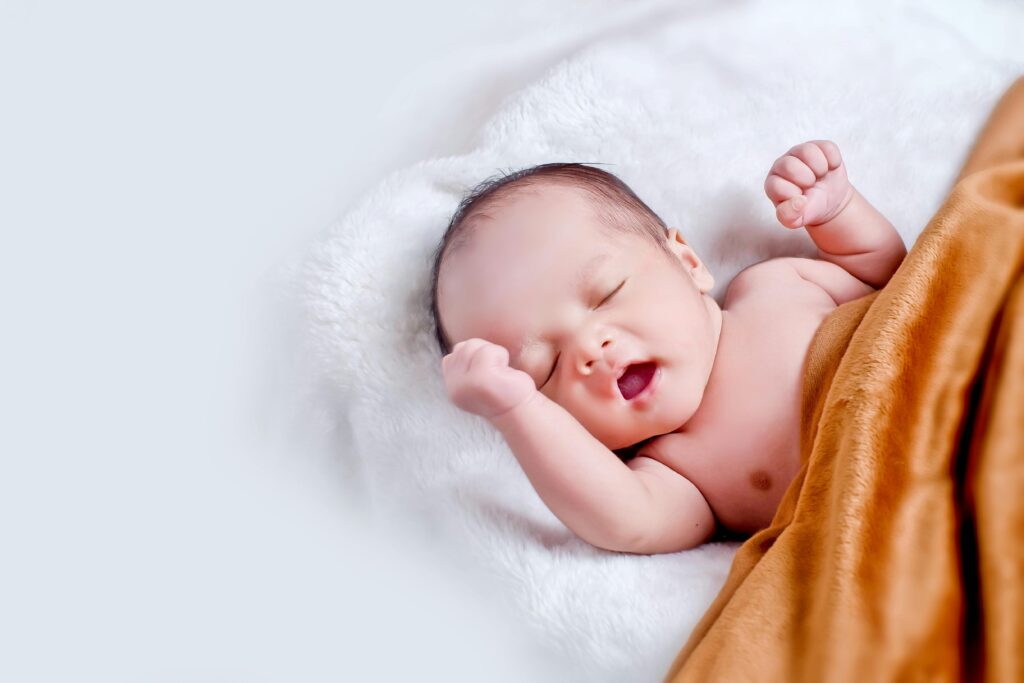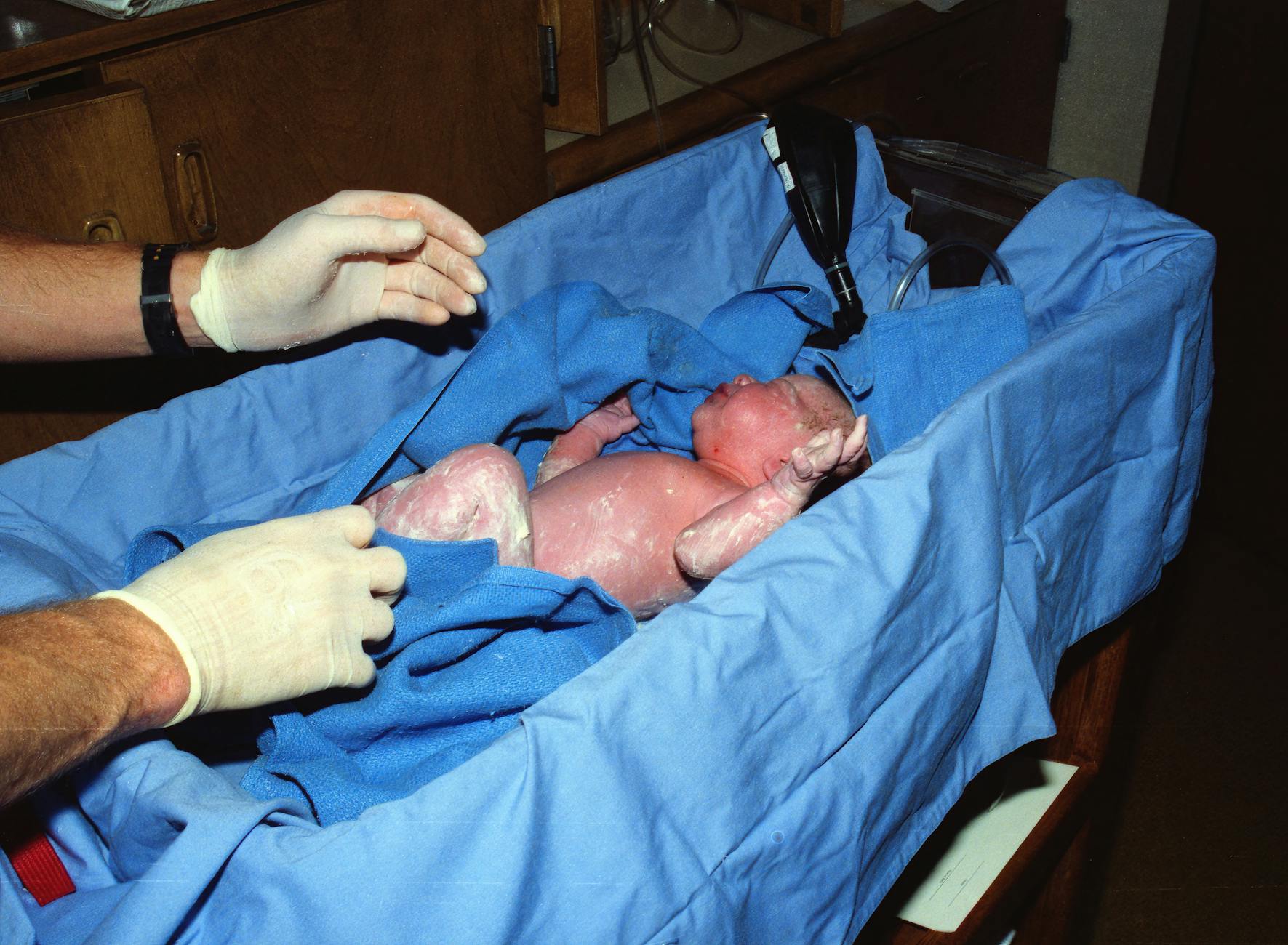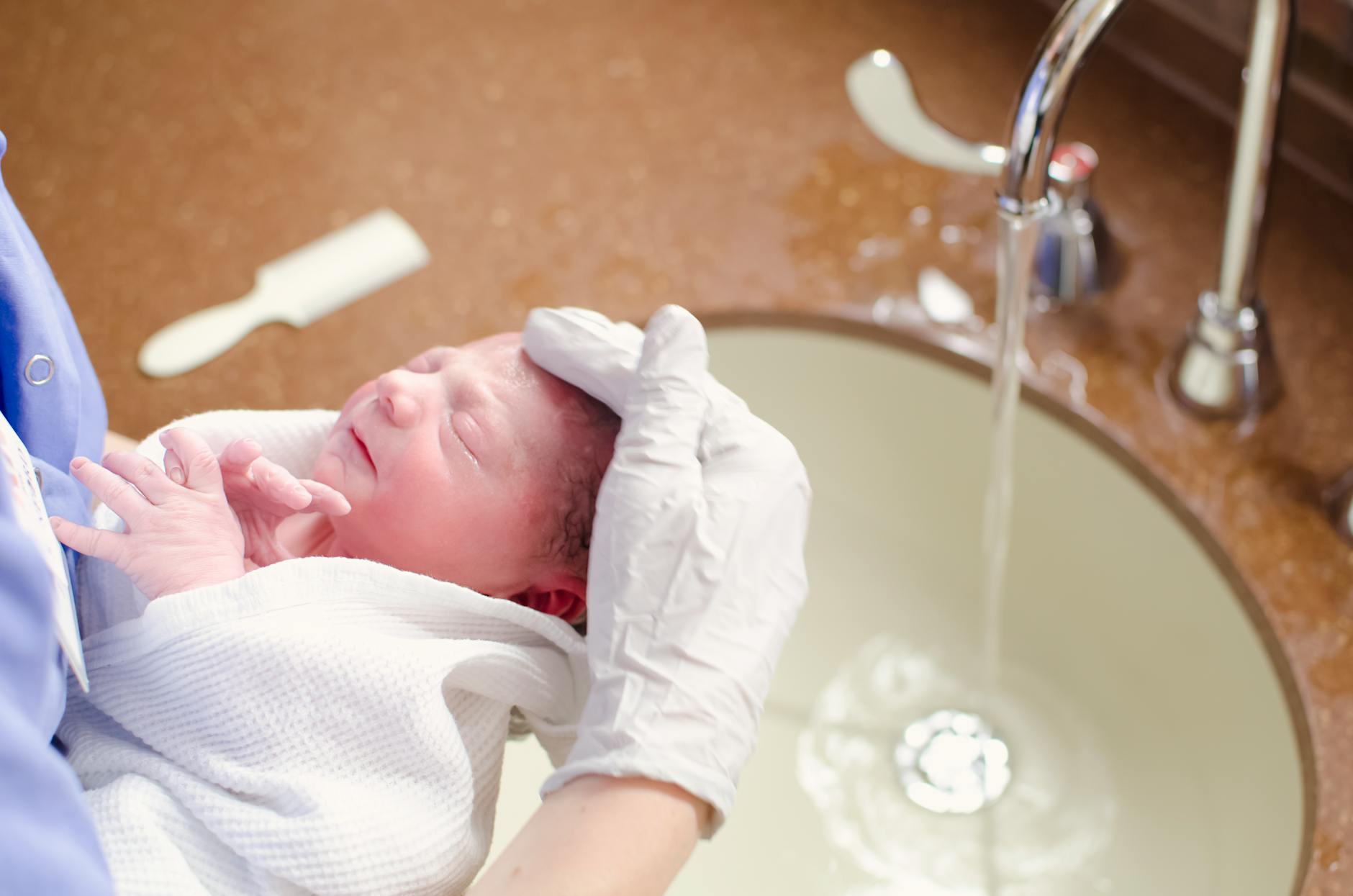Dehydration in Newborns
Dehydration happens when a baby loses more fluids than they take in, and newborns are especially at risk. Their tiny stomachs hold only small amounts at a time, so they need to feed often to stay hydrated.
Because they can’t tell us how they feel, spotting dehydration early is key. Signs like fewer wet diapers, sunken eyes, or a dry mouth shouldn’t be ignored. Catching these signs early helps prevent serious health problems and keeps your baby safe.
Common Signs of Dehydration in Newborns
Spotting dehydration in newborns is crucial because they can’t tell us when they’re thirsty or unwell. Instead, they show clear physical and behavioral signs that parents and caregivers can watch for. Knowing these signs early can make a big difference in protecting your baby’s health. Here are some common indicators to keep an eye on.

Reduced Wet Diapers and Urine Output
One of the easiest signs to notice at home is the number of wet diapers your baby produces. Newborns should typically have at least six wet diapers in 24 hours. Fewer than that is a clear red flag. When your baby isn’t getting enough fluids, the body tries to conserve water, resulting in less urine output.
- This drop in diaper wetness means your baby may be losing more fluids than they are taking in.
- A dry diaper lasting more than six hours should prompt you to check in with your pediatrician.
Monitoring diaper output offers a simple way to track hydration without medical tools, making it a reliable early warning sign.
Dry Mouth and Sticky Saliva
Have you noticed your baby’s mouth or tongue feeling unusually dry or sticky? This is a classic sign of dehydration. Normally, a newborn’s mouth stays moist due to regular feeding and saliva production.
- A dry mouth suggests that fluid levels are low.
- Sticky saliva feels thick and gummy, unlike the thin, wet saliva you expect.
This sign is important because it means the body isn’t producing enough moisture to keep tissues moist, signaling early fluid loss.
Lack of Tears When Crying
Crying is a newborn’s main way of expressing discomfort or needs. Typically, tears are part of this process. But when a baby is dehydrated, you might notice that tears are few or completely absent during crying.
- Lack of tears happens because the body reduces fluid in the eyes to conserve what little it has left.
- This subtle sign often goes unnoticed, but it’s a clear indicator of dehydration.
If your baby cries but their eyes stay dry, it’s time to take it seriously, especially combined with other symptoms.
Sunken Soft Spot (Fontanelle) and Eyes
The soft spot on a baby’s head—the fontanelle—is usually slightly raised or flat. When dehydration sets in, this spot looks sunken. The same goes for the eyes.
- A sunken fontanelle means the fluid around the brain is low.
- Sunken eyes appear deeper than usual and may look hollow or tired.
These signs reveal more severe dehydration because they show the body’s fluid reserves are dangerously low. Don’t wait if you spot this; seek medical help quickly.

Photo by Tom Fisk
Behavioral Changes: Fussiness, Lethargy, and Irritability
Dehydration doesn’t just affect the body; it changes behavior too. Pay close attention to how your baby acts:
- Fussiness can increase because dehydration causes discomfort.
- Lethargy or unusual sleepiness means your baby has less energy.
- Irritability shows up when they’re hard to soothe.
These behavioral shifts may be your baby’s way of signaling distress. They often accompany physical signs and suggest hydration needs immediate attention.
Recognizing these signs early can help you respond quickly and protect your newborn’s well-being. For more detailed guidance on dehydration in babies, Healthline’s guide on baby dehydration symptoms offers valuable advice. Also, organizations like the American Academy of Pediatrics provide trustworthy resources for parents concerned about hydration.
Causes and Risk Factors for Dehydration in Newborns
Dehydration in newborns can happen for several reasons. Understanding what causes it helps you protect your little one before they start showing signs. Newborns are more vulnerable because their bodies have less water reserve and they can lose fluids quickly. Let’s look at some common factors that contribute to dehydration in newborns.
Illness-Related Causes: Vomiting and Diarrhea
When your baby has a stomach bug or other illness, fluids can leave the body fast. Vomiting and diarrhea—often caused by infections like gastroenteritis—are the main culprits. These illnesses make your baby lose fluids and salt rapidly, upsetting the balance of hydration.
- Vomiting forces fluids back out almost as fast as they go in.
- Diarrhea causes frequent watery stools, leading to serious fluid loss.
Since newborns have tiny reserves, even a short bout of vomiting or diarrhea can quickly cause dehydration. When you notice these symptoms, it’s important to increase fluid intake and observe for signs of dehydration closely.
For more on how illnesses affect baby hydration, resources like MyHealth Alberta’s guide on dehydration in newborns clearly explain how fluid loss occurs during sickness.
Inadequate Fluid Intake and Feeding Difficulties
Sometimes, dehydration happens simply because the baby isn’t getting enough fluids. Feeding difficulties are quite common in newborns and include:
- Poor latch or suckling during breastfeeding
- Feeding refusal or low feeding frequency
- Formula preparation errors that dilute nutrition and fluid intake
If your baby struggles to feed well, even staying hydrated becomes a challenge. Breastmilk and formula are their only water sources, and missing feeds lowers fluid intake. Frequent, small feedings are vital for newborns to maintain hydration.
If you notice feeding troubles, consulting a lactation consultant or pediatrician can help prevent dehydration. Baby feeding practices directly affect fluid balance and need close attention.
Excessive Heat and Sweating
Newborns lose fluids when they sweat, just like adults, but they’re much more sensitive to heat. Being in a hot environment or overdressing your baby can increase their risk of dehydration.
- Sweating more than usual drains fluids faster.
- Hot weather or overheated rooms speed up water loss.
Keeping your baby comfortable, dressed appropriately, and in a cool environment helps maintain their hydration. Watch for sweating along with other dehydration signs during warm days or after physical activity like crying.
Other Risk Factors: Medication and Medical Conditions
Lastly, some medications and underlying health issues can contribute to dehydration:
- Certain medicines might increase urination or interfere with thirst.
- Chronic conditions like diabetes can alter fluid needs.
- Fever raises fluid loss through heat and breathing.
If your newborn is taking medicine or has a known medical condition, alert your pediatrician about dehydration risks. They can monitor your baby’s hydration more closely during illness or treatment.

Photo by Vidal Balielo Jr.
Being aware of these causes and risks can help you act quickly to keep your newborn healthy and hydrated. For more detailed medical information on pediatric dehydration, this well-researched overview from StatPearls offers great insights into causes and management.
How to Assess and Monitor Hydration Status at Home
Keeping a close eye on your newborn’s hydration is something you can do right from home without special tools. By observing simple signs and tracking daily habits, you can spot changes that might signal dehydration early on. This helps you act fast and protect your baby’s health. Let’s break down the most practical ways to assess hydration day by day.
Daily Diaper Count and Urine Color Observation
One of the most straightforward methods to check if your baby is well hydrated is by counting their wet diapers and paying attention to the urine color. Newborns should have about six or more wet diapers every 24 hours. If you notice fewer diapers or dry diapers lasting over six hours, it could mean your baby isn’t getting enough fluids.
Besides quantity, the color of the urine matters too:
- Light yellow or clear urine usually means your baby is hydrated.
- Dark yellow or strong-smelling urine can be a warning sign of dehydration.
Tracking diapers and urine color serves as an early and easy-to-follow guide to hydration, made for busy parents who want quick checks throughout the day.
Observing Physical Symptoms Regularly
There are a few physical signs you should look for daily as part of your newborn care routine:
- Dry mouth or tongue hints that the body isn’t producing enough moisture.
- Tear production decreases when your baby cries but doesn’t produce tears.
- Sunken fontanelle, the soft spot on your baby’s head, appears lower than usual.
- Sunken eyes look deeper or hollow.
These signs usually show up before dehydration becomes severe. You don’t need to be a doctor to notice them—just take a moment to observe your baby’s face and mouth during routine diaper changes or feedings. If you spot these indicators, it’s a signal to increase fluid intake or seek medical advice.
Tracking Behavioral Changes and Feeding Patterns
Behavior and feeding habits reveal a lot about your baby’s hydration. Watch for:
- Fussiness or irritability beyond their usual behavior. It often means discomfort or distress.
- Unusual sleepiness or lethargy—if your baby is hard to wake or less responsive, hydration could be low.
- Changes in feeding frequency, such as fewer feeds, refusal to feed, or shorter feeding times.
Hydration directly affects energy levels and mood, so behavioral changes can be early clues. Keeping a feeding log can help you spot patterns and share useful info with your pediatrician if concerns arise. Consistent monitoring allows you to act quickly if feeding issues could lead to dehydration.

Photo by Lemniscate L
For a trusted home guide on dehydration signs, the American Academy of Pediatrics offers clear, reliable advice that complements what you observe at home. Also, Nationwide Children’s Hospital explains how to give fluids effectively if mild dehydration occurs — an important resource for parents.
When to Seek Medical Help for Dehydration in Newborns
Knowing when to take your newborn to a doctor can mean the difference between quick recovery and serious complications. Dehydration in newborns can escalate fast because their bodies hold less fluid. It’s vital to recognize signs that show the dehydration is severe enough to need immediate medical attention. Equally important is understanding the treatments available and how you can prevent this condition from occurring. Here’s what you need to watch for and how to act.
Severe Symptoms: Extreme Lethargy, Sunken Skin, Rapid Breathing
Severe dehydration demands urgent medical care. If your newborn shows any of these symptoms, don’t wait—seek emergency help right away:
- Extreme lethargy: Your baby is unusually weak, difficult to wake, or shows very little movement.
- Sunken skin: When you gently pinch the skin on your baby’s belly or arms, it stays “tented” or doesn’t bounce back quickly. This means fluid levels are dangerously low.
- Rapid or labored breathing: Breathing faster than normal or struggling to breathe is a clear warning.
Other critical signs include a sunken soft spot (fontanelle), dry mouth, no tears when crying, and very few wet diapers. These symptoms indicate your baby’s body is under great stress and needs immediate rehydration support.
If you see these signs, it’s important to get professional help without delay. The American Academy of Pediatrics highlights these symptoms as emergency signs of dehydration in infants.
Medical Treatments for Dehydration in Infants
Doctors treat dehydration in newborns based on its severity. Mild dehydration might be managed with oral rehydration solutions (ORS) — specially formulated liquids that replace lost fluids and electrolytes. These solutions are safe for babies and help restore balance quickly.
In more severe cases, infants may need:
- Intravenous (IV) fluids: When oral intake isn’t possible or enough, fluids are delivered directly into a vein to rapidly replenish hydration.
- Close monitoring in a healthcare setting to watch vital signs and prevent complications.
Medical professionals decide on treatment by evaluating your baby’s symptoms, hydration status, and underlying cause. If you suspect dehydration, especially with worsening symptoms, your pediatrician can guide you on the best treatment option, or you may need to visit a hospital emergency room.
Preventative Measures and Care Tips to Avoid Dehydration
Preventing dehydration starts with simple everyday care—feeding regularly and keeping your baby comfortable. Here are some key tips to help you avoid dehydration in newborns:
- Feed often and on demand: Whether breastfeeding or formula feeding, newborns need small, frequent feedings to stay hydrated.
- Watch for feeding problems: If your baby has trouble latching or refuses feeds, seek advice early from a lactation consultant or doctor.
- Adjust clothing and environment: Avoid overdressing your baby, especially in warm weather. Keep the room cool and well-ventilated.
- Monitor wet diapers: Keeping track of how many wet diapers your baby has daily is an easy way to spot early fluid loss.
- Respond quickly to illness: Vomiting, diarrhea, or fever increase dehydration risk. Increase fluid intake and seek medical advice promptly.
Simple attention to these details can keep your baby healthy and hydrated, reducing the chance you’ll need emergency care.

Photo by Vicki Yde
For more detailed advice on dehydration in newborns and treatments, Healthline’s guide on baby dehydration symptoms offers clear explanations suitable for parents and caregivers. Always prioritize early action and professional support to keep your little one safe.
Read this article on Baby Sleep regression
Conclusion
Recognizing the signs of dehydration early in newborns is essential to keep them healthy and safe. Regularly checking diaper output, observing mouth moisture, tear production, and behavior can help catch dehydration before it becomes serious. Prompt action, whether it’s increasing fluid intake or seeking medical advice, makes all the difference in recovery and comfort.
Staying alert and consistent with monitoring gives you peace of mind and ensures your baby gets the care they need right away. Keep these signs in mind, and don’t hesitate to reach out to your pediatrician if anything seems off. Your quick response safeguards your newborn’s well-being and supports their growth every day.

Pingback: How to Care for Your Baby’s First Cold: Top Remedies